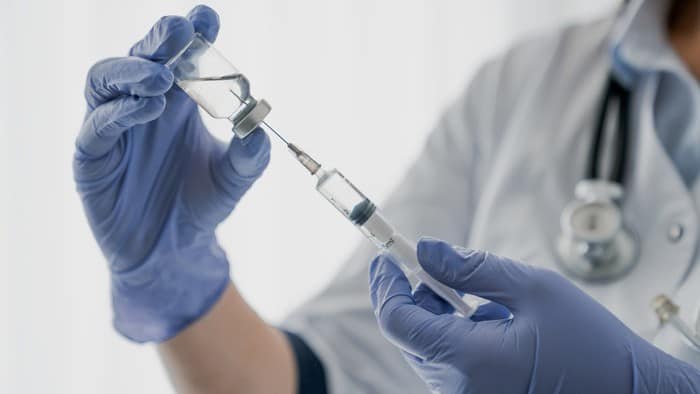This article was originally published on Fool.com. All figures quoted in US dollars unless otherwise stated.
Pfizer Inc (NYSE: PFE) is conducting one of the most advanced trials of a vaccine for COVID-19, and CEO Albert Bourla told an interviewer on Sunday that the drugmaker could know if its candidate is effective by the end of October.
The healthcare company is researching a slate of possible vaccines in partnership with BioNTech (NASDAQ: BNTX), and a phase 2/3 study evaluating its most advanced coronavirus vaccine candidate, BNT162b2, began in July. That trial is structured to include a total of 30,000 participants who will be given two doses of the vaccine, 21 days apart.
The assertion that the trial will have garnered enough data by the end of next month for the company to determine whether it's ready to seek emergency use authorisation from the Food and Drug Administration comes as the healthcare companies have requested permission to increase enrollment in it to as many as 44,000 people. That would allow them to include volunteers as young as 16 years old, as well as people with pre-existing viral infections such as HIV and hepatitis B and C.
If BNT162b2 proves sufficiently effective to earn a thumb's up from the FDA, Pfizer and BioNTech believe they'll be able to provide up to 100 million doses of it by the end of 2020, and up to 1.3 billion doses by the end of 2021. Previously, the companies signed agreements to supply up to 600 million doses to the United States and up to 200 million doses to the European Union beginning later this year. Also, a deal with Japan would see up to 120 million doses sent to that country in the first half of 2021.
Although Bourla's statement about the clinical trial timeline is encouraging, there are no guarantees that the timing won't shift, or that the vaccine will prove effective enough. Last week, the phase 3 study of AstraZeneca's rival COVID-19 vaccine candidate was placed on a temporary hold so that researchers could evaluate an isolated safety signal –a good reminder of the uncertainty associated with all such human trials.
This article was originally published on Fool.com. All figures quoted in US dollars unless otherwise stated.









